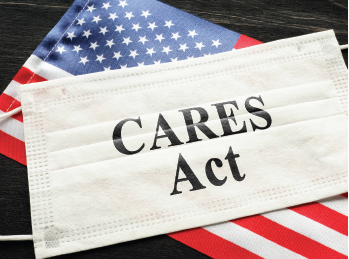
© Vitalii Vodolazskyi / shutterstock.com
Waco Ear, Nose & Throat was approved and funded for a federal Paycheck Protection Program (PPP) loan through a local bank in the nick of time to help save the practice. Unfortunately, not every private practice has been fortunate enough to obtain funds through the loan program created by the CARES Act passed by Congress in the aftermath of the COVID-19 pandemic. The CARES Act allotted $349 billion initially, with a second round of $310 billion, to help keep small businesses in the U.S. afloat while their doors were closed by law. These funds are expected to have run out by the time this article is published. But even those who have received PPP funds will still need to be proactive, flexible, and perhaps even creative in figuring out how to financially survive the coming months.
Explore This Issue
June 2020“It’s disconcerting that the first round of the program was shuttered after less than two weeks,” said Bradford Holland, MD, one of three physicians at Waco Ear, Nose & Throat, a private practice located in Waco, Texas. “There are many stories of sister practices and medical colleagues who were in the pipeline but didn’t get funded because of the sheer volume of applications,” he said. “We felt fortunate, but it’s clearly leaving a lot of people in the dust.”
As of this writing, even with the loan, Dr. Holland said his practice’s existence is tenuous beyond mid-June if some semblance of normalcy does not return—had Waco Ear, Nose & Throat not gotten the loan, their doors might have closed permanently.
According to the U.S. Department of the Treasury, PPP loan amounts do not have to be repaid as long as, during the eight-week period after the loan closes:
- Loan proceeds are used to cover payroll costs, and most mortgage interest, rent, and utility costs incurred before Feb. 15, 2020; and
- Employee and compensation levels are maintained.
Payroll costs are capped at $100,000 on an annualized basis for each employee, and not more than 25% of the forgiven loan amount may be for qualifying non-payroll costs. Businesses that use the loan amount for anything other than the above and/or that do not maintain their staff and payroll will owe money when the 1% interest loan is due in two years. Loan forgiveness will also be reduced if the business’ full-time employee head count is reduced, or salaries and wages are decreased by more than 25% for any employee who made less than $100,000 in 2019. Practices will have until June 30, 2020, to restore their full-time employment and salary levels for any changes made between Feb. 15, 2020 and April 26, 2020.